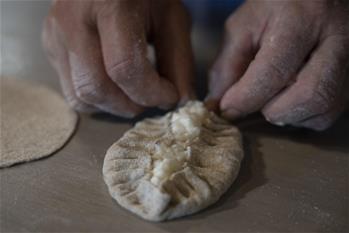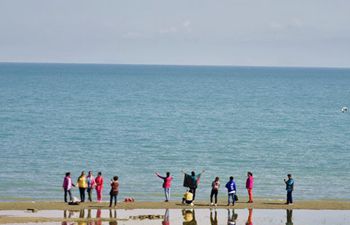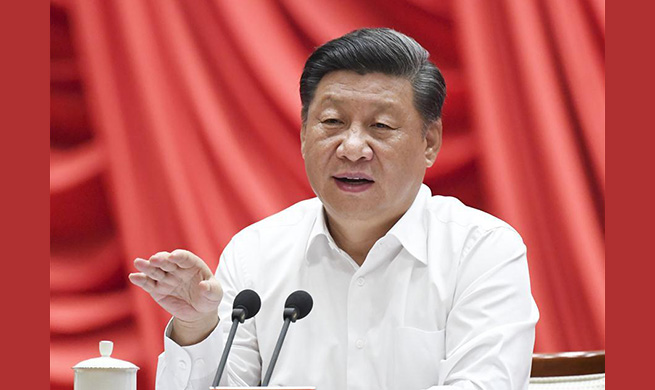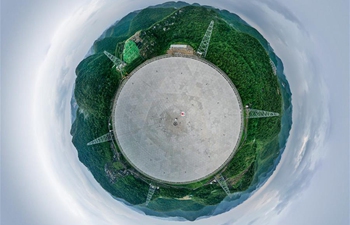ROME, Sept. 4 (Xinhua) -- A month ago, Matteo Salvini, leader of Italy's right-wing League,triggered a series of events that he hoped would trigger new elections. Instead, they left him without a government job as a leading member of the country's political opposition.
This week leaders of the populist Five-Star Movement and the center-left Democratic Party are in the midst of putting the finishing touches on a new government led by Giuseppe Conte.
Conte was also prime minister for nearly 15-months, heading the government backed by the Five-Star Movement and the nationalist, right-wing League.
A month ago, polls showed support for the League nearing 40 percent, higher than ever before. The League had outmaneuvered the Five-Star Movement on a series of legislative priorities, including support for the 25-billion-euro (27.5-billion-U.S. dollar) high-speed train link between Turin, Italy, and Lyon in France.
"It must have seemed to Salvini that it was the right moment to take power into his hands," Franco Pavoncello, a political scientist and president of Rome's John Cabot University, told Xinhua.
But Salvini's plans to make the government collapse and force new elections that would put him into power fell flat when the Five-Star Movement and the Democratic Party decided to look past past differences and form a coalition that will back Conte's second government.
Polls show that Salvini's recent moves have cost the League in terms of overall support. From the high of nearly 40 percent in early August, the League has seen support levels erode to around 30 percent in recent surveys. That's still enough to make the League Italy' largest political party -- most polls show support for the Five-Star Movement and the Democratic Party in the low- to mid-20s -- but it gives Salvini a weaker hand than he had.
Despite that, he is in no danger of losing support within the League, a party he took over in 2013 when it was on the brink of irrelevance.
In the last national election before Salvini took over the League, the party earned just 4 percent of the vote nationally. Since then, the League rode a wave of anti-migrant, nationalist sentiment to see its share of the national vote increase to 6 percent in 2014, 17 percent last year, and 34 percent in voting for European Parliament in June.
The long-term impact of Salvini being pushed back into opposition is still not clear. The Italian media has speculated that if the new government stumbles during always-difficult negotiations for the country's 2020 budget, the League will be able to present itself as a viable alternative, one not muddied by the budget negotiation process.
That is a point Salvini himself has made. In a rally that took place at the start of talks between the Five-Star Movement and the Democratic Party, Salvini told the crowd: "Even my six-year-old daughter laughs at the idea that the Five-Star Movement and the Democratic Party can agree on anything!"
What is more, as the de facto leader of the opposition, Salvini will be in a position to drive a wedge between the Five-Star Movement and the Democratic Party, calling attention to areas where the parties disagree.
Alessandro Franzi, co-author of a leading biography on Salvini, said being an opposition figure could actually play to Salvini's strengths.
"Salvini's political rise came as a critic, not as a policymaker," Franzi said in an interview. "I think he will fall back into that role with a very specific target: demolishing the alliance between the Five-Star Movement and the Democratic Party and trying to make people forget he was the one who made that alliance necessary."













